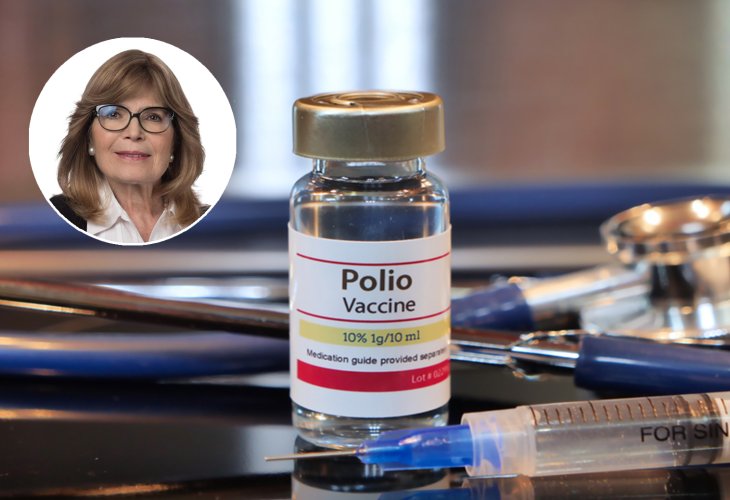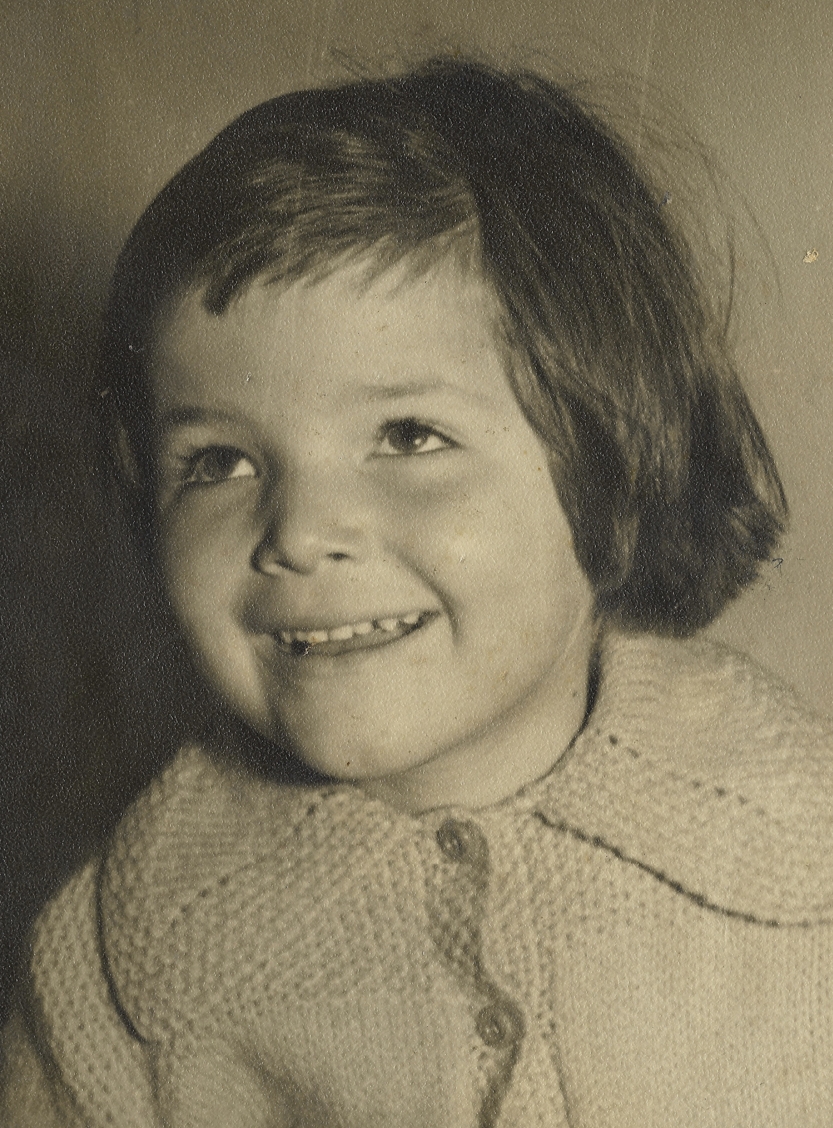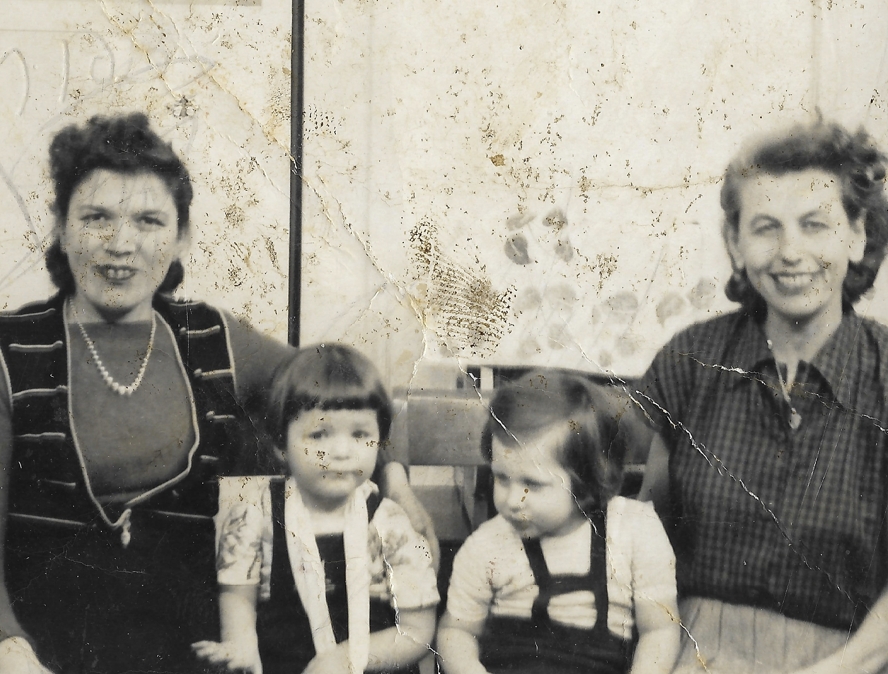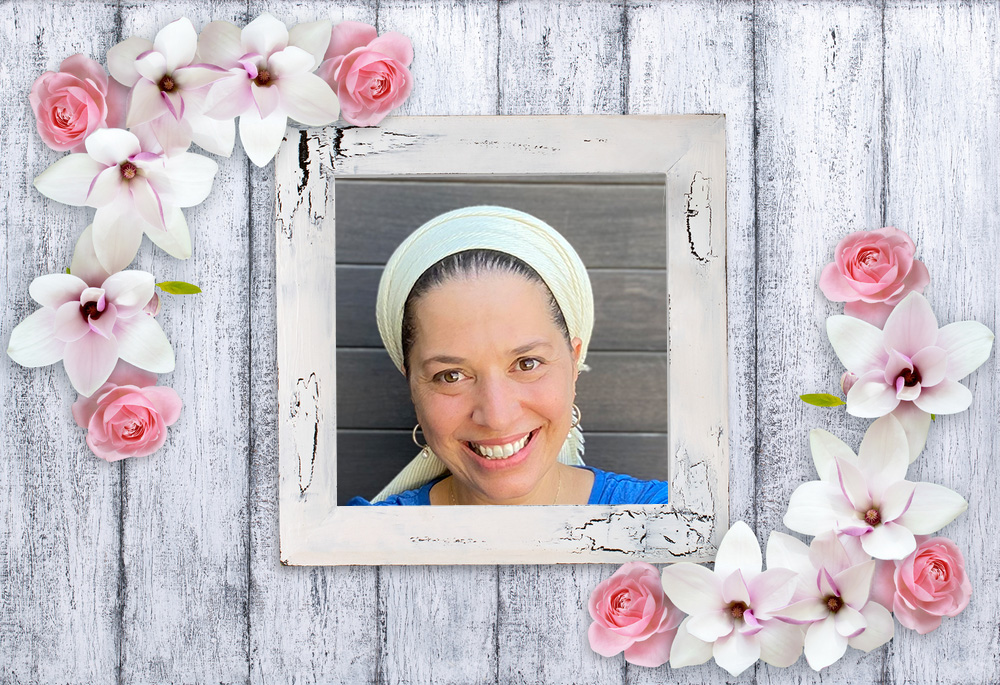"I Asked My Father: 'When Can I Raise My Hand?' He Answered: 'Never'"
Sarah Frish, formerly the youngest judge in the country, reveals the great challenge of her life: disability due to polio. She shares her childhood experiences, explains why her parents did not dwell on her illness, and how she managed a household and a demanding career with a paralyzed hand.
 Inset: Sarah Frish (Photo: Eitan Riklis)
Inset: Sarah Frish (Photo: Eitan Riklis)Sarah Frish was 32 when she made history by becoming the youngest judge in Israel. She held the prestigious position for 13 years, after which she stepped down and moved on to other significant endeavors, including serving as the President of Shaarei Mishpat College, heading important committees, serving on various boards, and being part of committees.
Few knew that the esteemed judge was 100% disabled, with one arm completely paralyzed due to childhood polio. Interestingly, even the judge herself did not place importance on it. "This is the approach my parents instilled in me from childhood," she explains candidly, "that's how I was raised and grew up."
The one who noticed her remarkable story is her daughter Tamar Hershkowitz, a social worker by profession, who engages in personal, couple, and family counseling and parenting guidance. Tamar decided to turn her mother's story into an emotional and special book. Now, they sit together for a joint conversation about life alongside the disability and the amazing journey they experienced together.
 In childhood
In childhoodA Little Girl, A Big Challenge
Sarah is now seventy-four, but her story begins in the 1950s, when the polio epidemic raged in Israel and she was one of the affected. "I contracted polio at a very severe level and was paralyzed in all limbs," she details. "At that time, they didn't know in Israel how to deal with the disease, and my parents learned about a medical institution in Washington offering unique treatment for children with polio using innovative tools. My parents were determined to do everything for my recovery, so despite their very poor financial situation, it was decided that I would fly with my mother to Washington to receive treatment there. And so it was. I flew with my mother to Washington and was hospitalized in the medical institution for about a year. During that year, my mother slept on the bench outside and lived on the food leftovers I left. Meanwhile, my father stayed in Israel, working around the clock to finance the expensive treatments, as well as to support himself and my older sister, who stayed with him. At some point, it was difficult for him to care for her, and she was sent to an institution, so she too paid the price. Those were not easy days at all."
 In America
In AmericaDid the treatment in the U.S. succeed?
"Yes, they treated me well, and I managed to almost completely recover; I returned to using my limbs well, except for one arm where the paralysis remained."
But the remaining paralysis was significant. Sarah notes that since then and until today, she cannot use the hand at all. Additionally, she had to undergo a series of surgeries as a child. "But the amazing thing is," Sarah notes, "despite everything I remember my childhood as a wonderful period, a true paradise. It's not that there weren't pains or frustrations, but thanks to the special strength my parents gave me, out of determination and faith, I never felt like a victim. The word 'disability' never crossed their lips, and as a result, never crossed mine. They didn't learn parental guidance, nor did they receive psychological assistance, but they decided by initiative to provide me with a normal childhood. I received from them the same treatment as any other regular girl."
Tamar, do you think, as a parenting guide, that the right way is to ignore the children's difficulties and allow them to feel normal?
"'Ignore' is not the right word," clarifies Tamar, Sarah's daughter. "My mother's parents did not ignore her situation. On the contrary, they cared for her and regularly took her for treatments that might benefit and help. There was no ignoring, but it didn't contradict the fact that they chose to see through their eyes her strong and healthy side. As parents, we often feel that if we wrap our children and prevent them from facing challenges, we'll build their self-confidence. The opposite is true, because confidence is built precisely when there is a challenge."
"My parents really didn't let me miss out on anything," Sarah agrees, "for instance, if I wanted a slice of bread, my father offered: 'Take a knife and slice a piece.' I replied: 'But how will I hold the bread so it doesn't move?' He calmly responded: 'Maybe you could use your chin?' This was also the case when I wanted to go on a trip and needed a suitcase. My father suggested: 'Climb on a ladder and find a suitcase in the attic.' When I was afraid, he stated: 'If you want a suitcase – you need to find a way to get it.' This approach was also evident in housework. My parents insisted that I take part in household chores, just like everyone else, including washing the floor, going shopping, helping with carrying. Of course, within all those demands, there was also a lot of laughter, humor, and support. But the message was clear – 'You're just like everyone else. You don't get any discounts.'"
 Tamar Hershkowitz
Tamar HershkowitzTamar is sure that this is the most important thing we can give our children as parents. "A parent should know they are able to bring about a real transformation in their child's life, but only if they offer trust and love. Sometimes we think that if we care for the child and try to help all day, they'll feel our love and we can make life easier for them. But it doesn't work that way, because the care becomes an umbrella that hides the sky from the child and could restrict their independence. A truly loving parent needs to understand that even when sometimes being strict and not giving in to their child, they succeed in truly offering them trust, thus allowing the child to gain more tools to develop. Of course, all these demands should come with lots of love, that's the secret of the game."
Sarah adds: "There was a clear reality – the hand doesn't work, and no one denied it. I remember myself as a small child asking my father: 'When will I be able to raise my hand?' and his answer was: 'Never.' So I cried, and he said to me: 'It's okay to cry, but after you finish crying, let's see how we can paint this reality in pink.' Dad tried to illustrate to me that there was no connection between reality and the interpretation we give it. Thus he taught me the ability to cope."
"I Spoiled the Dance"
When Tamar hears her mother's words, she adds another layer: "The truth is that we as children never felt that we had a disabled mother. When I grew up a bit and someone once asked me if, as a daughter of a disabled mother, I experienced trauma, I didn't even understand what they meant. After all, my mother isn't disabled. The moment I began to understand my mother's incredible strength was after I got married and had children. Suddenly I started to realize: 'Mom raised us, took care of us, cooked, cleaned, and did everything with one hand.' When my eldest son was two, it hit me again: 'At this age, my mom went through the paralysis?' I even started to admire my grandparents, who as a young couple parted for almost a year for the health of their daughter. It shook me. Only then did I begin to understand a little of the event."
Sarah is convinced that her parents are the true heroes of the story, and she recalls an unforgettable incident: "When I was three, there was a Chanukah party at kindergarten, and the teacher organized dance groups. At some point, she turned to me and announced: 'In the dance where you need to drum, you are not participating, because you need two hands – one to hold the drum and the other to drum.' I returned home crying and told my parents that I wasn't participating, but they responded: 'Of course you will.' When we arrived at the party, my parents sat behind me, as was customary, and when the drum dance came, they gently pushed me to also get up. The teacher looked at me firmly and whispered: 'You're not participating,' and I bravely replied: 'I am.' I stepped into the circle with a drum in my one hand, shaking it with all my might to make it sound since I couldn't drum. The teacher was very embarrassed but said nothing, and when the dance ended, I returned to my seat and happily told my parents: 'I spoiled the dance!' and they were proud of me." Sarah pauses for a moment and adds: "For me, the special thing was that my dear parents never accused anyone, and even in this case, they didn't cause scandals or complain to the teacher. They didn't try to educate society but rather guided me to free choice so I would courageously do what was right for me."
Still, were there things you had to give up?
"Just one. We are a very musical family, and I really wanted to play the piano. When I realized it wouldn't be possible for me – I accepted it with understanding, but after age 18, I heard about a girl with a paralyzed hand who played the harmonica. At that moment, I decided to fill my musical gap and went to learn the harmonica."
A Story of Life
In Sarah's special life story, there wasn't only struggle but also great success, as Sarah chose to specialize in legal studies at a young age. Following this, she served as a senior attorney and even became the youngest judge in the country.
Do you think the polio has anything to do with your top achievements?
"If you had asked me that question during my studies, I would've said there is no connection, even in the years when I served in the role. I always saw myself as a good student, with a developed sense of justice, and it was very clear to me that it was a great mission to work in the field. But today, looking back, I think the polio did influence it. Perhaps I felt subconsciously that just the fact a girl with a completely paralyzed hand can achieve high accomplishments makes an important statement to the world. But it was not only expressed in the professional field but also in the fact that for years I got to raise my children and function as a mother, without limitation. I think that's equally important, perhaps even more."
And what made you decide now to publish the book?
Tamar shares: "I released my first adult book dealing with relationships in the context of old age and loss of meaning a few years ago. When I planned to write a new book, I was unsure of the subject, then I realized there's no story like my mother's to connect to the hearts of people and instill them with strength. By the way, these days my third adult book is being released, on a completely different topic.

"The truth is, when I first suggested the idea to my mom to publish her story, she was very happy, mainly from the aspect of honoring parents and a strong desire to empower other parents who are coping. At first, we hesitated whether to write an accurate biography, including names and family structure, or take the essence of the story and apply it to other characters. In the end, I left the decision to my mom, and she chose the second option. So we set out, and the writing process was very quick, because the story was already within me; it was part of what I experienced in my life. I sat and wrote for days and nights, and eventually gave it to my mom to read, and she commented on it, brought new aspects, and added a lot of depth."
Sarah concludes: "I want to clarify that I chose for the story not to focus directly on me because I truly am not the significant one here. I wanted to convey the experiences not for people to know who I am but because I see it as a story of faith and determination that can empower so many parents, both those facing complex issues and those whose lives are stable yet still need encouragement. I revealed my story for them, in love and appreciation."
To contact Sarah and Tamar: moher40@gmail.com

